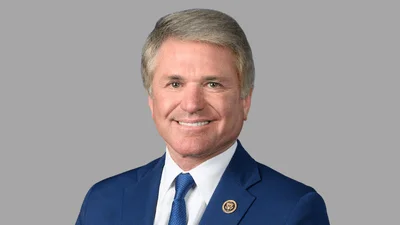The American Medical Association (AMA) and other medical associations across the country are rallying in support of newly proposed legislation aimed at preventing a 3.37% Medicare payment cut scheduled for next year. If not reversed, this will mark the fourth consecutive annual reduction.
In a press release issued by Rep. Greg Murphy (R-NC), it was revealed that a bipartisan group of representatives, including Murphy himself, introduced the Preserving Seniors' Access to Physicians Act (H.R. 6683) earlier this month. The proposed law is designed to halt the implementation of the Medicare physician fee schedule cuts set to take effect on January 1, 2024. According to Murphy, the Centers for Medicare & Medicaid Services, which finalized the rule for the cut last month, has forecasted a 4.6% increase in physician practice expenses in 2024. "Physicians will be faced with an 8% cut unless Congress acts," he stated in the release.
"Canceling the cut is a good new year's resolution," said AMA President Jesse M. Ehrenfeld, highlighting how these reductions threaten both healthcare access for seniors and the viability of physician practices, particularly those located in rural and underserved areas.
According to a press release from the American Society of Anesthesiologists (ASA), they have expressed strong support for H.R. 6683 and urged Congress to pass it before implementing the planned cut in 2024. ASA President Ronald Harter commented on years of continuous cuts and freezes saying, "Medicare payment rates for anesthesia services are virtually the same as they were in 1991–32 years ago. That is unacceptable and unsustainable."
The California Medical Association also voiced its disapproval over the proposed 3.37% cut in a recent press release. They noted that if implemented, this would result in nearly a 10% decrease in payments after four consecutive years of cuts. "More than 6.5 million Californians are enrolled in Medicare and many of these seniors can no longer find a physician who is accepting new Medicare patients," the association stated.
In a press release from the Washington State Neurological Society, it was mentioned that the previous three Medicare cuts have compelled medical practices and integrated systems of care to implement hiring freezes. They have also had to delay system improvements and their transition to value-based care systems. The release added, "Further, the effects of these cuts will be exacerbated in rural and underserved areas, which continue to face significant healthcare access challenges."









